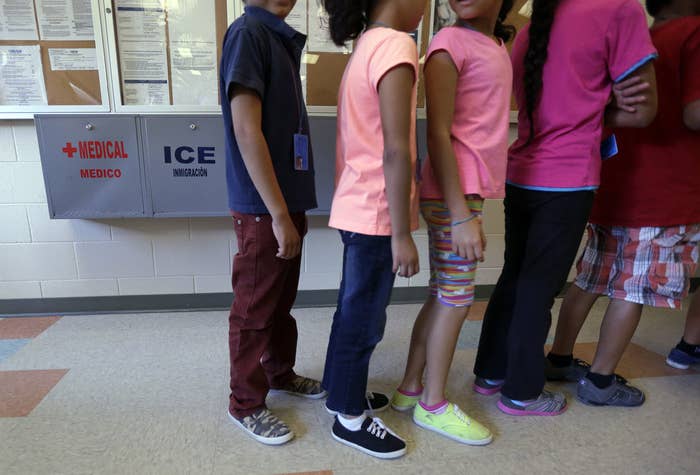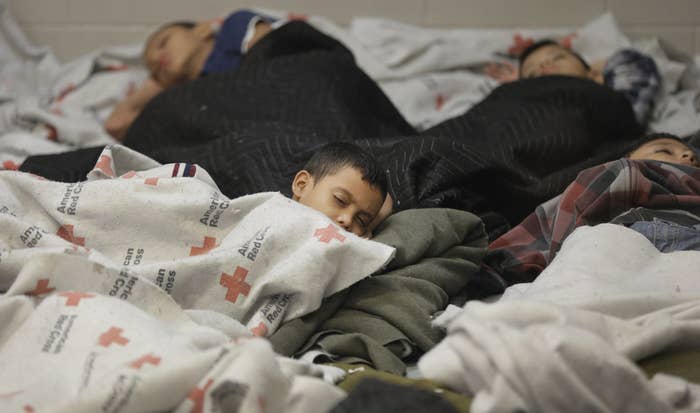
Some 121 undocumented immigrants and their children are being deported after being caught in a series of raids in multiple states over the weekend, U.S. officials said Monday.
The raids targeted Central American adults and children who were apprehended after crossing the Mexico border, who had been given final orders of removal by an immigration court, and had exhausted all available legal recourses, officials added.
“This should come as no surprise,” Department of Homeland Security Secretary Jeh C. Johnson said in a statement. “I have said publicly for months that individuals who constitute enforcement priorities, including families and unaccompanied children, will be removed.”

The raids conducted by Immigration and Customs Enforcement (ICE) are in response to the spike of Central American families and unaccompanied minors who started crossing the U.S. border in high numbers in 2014.
The Washington Post first reported about the planned raids.
While past deportation efforts have focused on adults at places of employment, Johnson said the weekend’s operations were an effort to deport higher numbers of adults who entered the U.S. illegally with children. The 121 detained immigrants were primarily living in Georgia, Texas, and North Carolina.
Kica Matos, spokeswoman for the Fair Immigration Reform Movement, called Johnson’s statement was alarming given the violence Central American families were fleeing.
“Deporting these families back to horrific conditions is not a reasonable or rational response to a crisis,” Matos said. “If these families are deported — and most of them would be women and children — they would be returned to places they fled to escape being killed, raped or tortured.”
However, that the Obama administration is being criticized by advocacy groups for being too tough on immigrants and by Republicans for not being firm enough wasn't lost on Johnson.
“I also recognize the reality of the pain that deportations do in fact cause,” Johnson said. “But, we must enforce the law consistent with our priorities. At all times, we endeavor to do this consistent with American values, and basic principles of decency, fairness, and humanity.”

Even before the raids took place, immigrant and Latino advocacy groups were condemning the efforts as inhumane. Groups like the Coalition for Humane Immigrant Rights of Los Angeles (CHIRLA) were reaching out to immigrants before the raids to inform them about their rights.
Xiomara Corpeno, national campaigns director for CHIRLA, said Central American refugees are similar to Syrian refugees because both groups are fleeing violence.
“There may not be a civil war going on in Central America but there is a war on the ground leaving up to 15 people a day dead in a country that has a smaller population than Los Angeles county,” Corpeno told BuzzFeed News.
An analysis of federal data by the Transactional Records Access Clearinghouse at Syracuse University found that as of November there were 17,625 removal orders for families. Of those 14,707 were in absentia, meaning the families weren’t present at the court hearing when the ruling came down, and only 427 were represented.
Royce Bernstein Murray, director of policy, at the National Immigrant Justice Center, said these numbers were a cause for concerns in light of the immigration raids.
Murray said some people had their hearings moved without them knowing, in some cases even after they told the court they moved to a new address. In other instances, because the nation’s immigration courts are so overwhelmed and there aren't enough pro bono attorneys, people seeking asylum didn’t know they were due back in court.
“Folks in absentia orders haven’t had their day in court or opportunity to seek protection,” Murray told BuzzFeed News. “If someone hasn’t had the chance to go before an immigration court and make a claim it’s hard to know if we’re deporting someone back to a real risk.”
